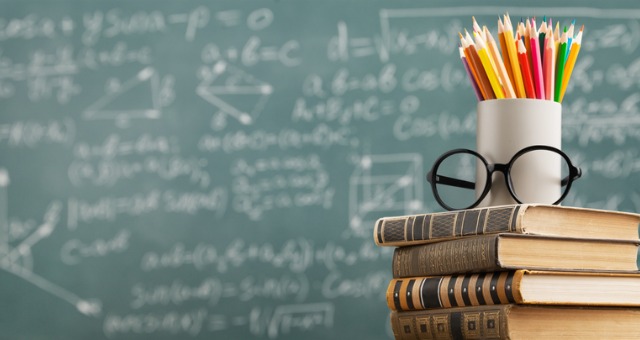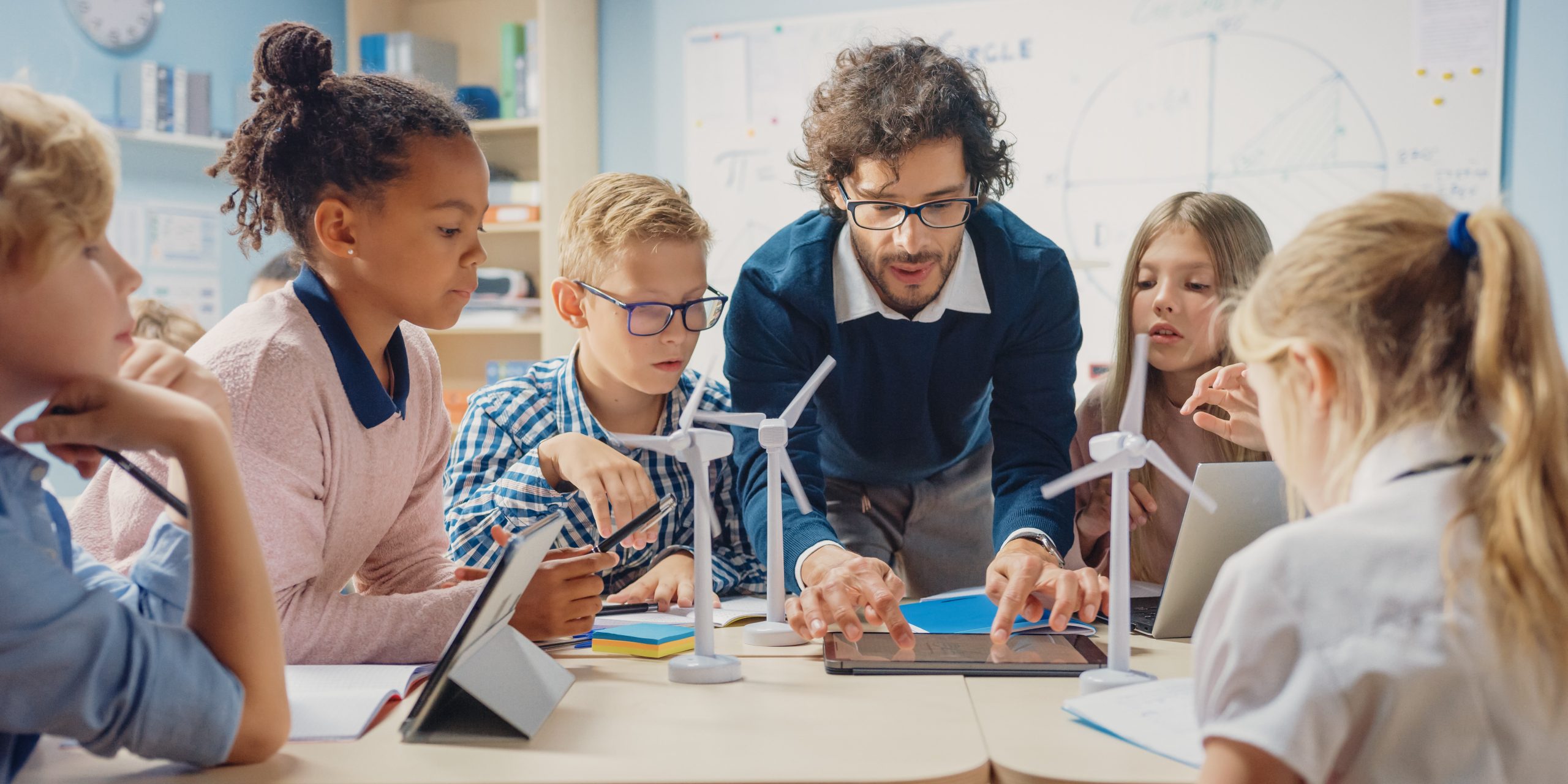Find the Best Primary Science Tuition Singapore for Enhanced Learning
Find the Best Primary Science Tuition Singapore for Enhanced Learning
Blog Article
Checking Out the Different Mentor Approaches in Key Science Education And Learning Today
The landscape of main science education and learning is progressing, with various teaching techniques acquiring prominence in modern classrooms. Inquiry-based learning, hands-on experiments, and the combination of modern technology are redefining how teachers involve young minds. Additionally, joint strategies and distinguished guideline are being used to satisfy the diverse requirements of trainees, boosting both involvement and understanding. As we analyze these methods, questions develop regarding their effectiveness and the ramifications for future educational methods. What might these changes in technique mean for the next generation of learners?
Inquiry-Based Knowing
Inquiry-Based Learning (IBL) is a pedagogical approach that urges trainees to explore clinical concepts with wondering about, investigation, and hands-on testing. This technique highlights the function of students as energetic individuals in their discovering, advertising critical thinking and analytical abilities. By involving with real-world inquiries, students become determined and interested, which boosts their understanding of clinical principles.
In IBL, educators act as facilitators, directing pupils as they browse their inquiries as opposed to delivering info straight. This student-centered approach permits differentiation, fitting different discovering speeds and designs. Pupils create skills in creating hypotheses, creating experiments, and evaluating information, which are important for scientific proficiency.
Additionally, IBL promotes collaboration among students, motivating them to share ideas and searchings for. This collective query promotes social skills and a feeling of neighborhood within the class. Moreover, the procedure of query urges durability, as pupils discover to welcome failing as a stepping rock toward understanding.
Hands-On Experiments
Hands-on experiments are an important element of reliable science education and learning, matching the concepts of inquiry-based knowing. These experiments permit trainees to engage directly with scientific ideas, fostering a much deeper understanding via experiential learning. By controling products and observing outcomes, young learners can understand abstract theories in concrete means.
Such activities promote important reasoning and analytic skills, as students hypothesize results, conduct experiments, and examine outcomes. This procedure motivates them to ask inquiries, improve their understanding, and create a clinical state of mind. In addition, hands-on experiments can be tailored to diverse learning styles, making sure that all pupils have the opportunity to engage meaningfully with the material.
Moreover, hands-on experiments commonly motivate collaboration amongst peers, advertising synergy and interaction abilities. Functioning in teams makes it possible for students to share concepts, go over findings, and pick up from one an additional, which boosts their total academic experience.
Including hands-on experiments into the key science educational program not just improves the finding out atmosphere but also grows a long-lasting passion in scientific research. By proactively getting involved in their education and learning, students are more likely to develop an interest for clinical inquiry that prolongs beyond the classroom.

Modern Technology Combination
Incorporating innovation right into key science education has ended up being progressively crucial in fostering student engagement and enhancing learning outcomes. Making use of digital tools, such as interactive simulations, online labs, and educational software application, offers trainees with opportunities to explore scientific concepts in innovative ways. These resources promote a deeper understanding of complicated topics by enabling students to picture and adjust variables that would be unwise in a conventional classroom setup.
Furthermore, modern technology combination motivates customized discovering experiences. Students can advance at their very own rate, revisiting difficult concepts via multimedia resources, which satisfy different understanding styles. This adaptability not just supports individual development however also grows a sense of autonomy in students.
In addition, innovation functions as a bridge to real-world scientific research, linking students with existing research study and expert payments. Access to clinical journals and on-line databases widens trainees' perspectives on clinical inquiry and cultivates essential believing skills.
Collaborative Understanding
Joint discovering plays an essential function in key science education and learning by promoting synergy and interaction abilities among pupils. This method motivates learners to collaborate, share knowledge, and involve in analytical, which enhances their understanding of scientific principles. By taking part in group activities, trainees find out to verbalize their ideas, pay attention to diverse point of views, and discuss options, every one of which are crucial abilities in both scholastic and real-world contexts.

Study shows that collaborative learning can cause raised inspiration and interaction in scientific research topics, as students find pleasure in shared experiences (primary science tuition Singapore). Furthermore, this method prepares pupils for future collective ventures, equipping them with the skills necessary for reliable synergy in greater education and learning and specialist settings. Ultimately, accepting joint understanding in primary science education and learning can significantly enhance the understanding experience and promote a deeper understanding of clinical questions
Differentiated Guideline

Set apart direction can materialize in numerous ways, such as varying the web content, processes, or products of discovering. For example, teachers may make use of tiered projects that offer varying levels of complexity, enabling trainees to work at their particular preparedness levels. In addition, adaptable grouping approaches can promote partnership among students with different capabilities, promoting peer learning.
Analysis plays a crucial role in this method, as it educates guideline and aids instructors comprehend each student's distinct requirements. Formative assessments, such as observations and quizzes, can lead instructors in readjusting their techniques to improve discovering end results. primary science tuition Singapore. Inevitably, by carrying out distinguished guideline in key science education and learning, educators can cultivate a much more reliable and equitable learning atmosphere, empowering all trainees to reach their complete capacity in recognizing useful site scientific phenomena
Conclusion
In recap, the diverse training methods in primary scientific research education and learning, consisting of inquiry-based understanding, hands-on experiments, innovation integration, collaborative understanding, and distinguished guideline, jointly contribute to a much more effective understanding atmosphere. These methods advertise important reasoning, analytic abilities, and a much deeper comprehension of clinical concepts. By executing these strategies, teachers can develop engaging and encouraging classrooms that deal with the varied requirements of pupils, eventually promoting a lifelong interest in science and enhancing scholastic achievement.
Inquiry-Based Learning (IBL) is an instructional technique that motivates trainees to explore clinical concepts through questioning, examination, and hands-on testing.Collective knowing plays an essential role in Resources key scientific research education by cultivating teamwork and interaction abilities among trainees.Research study shows that joint knowing can lead to raised motivation and interaction in science topics, as pupils find pleasure in shared experiences.In fostering an inclusive discovering atmosphere, set apart instruction arises as a crucial method to suit the diverse needs and abilities of trainees in main scientific research education. Inevitably, by carrying out set apart instruction in primary scientific research education, instructors can grow a more equitable and reliable discovering environment, encouraging all students to reach their full possibility in recognizing scientific sensations.
Report this page